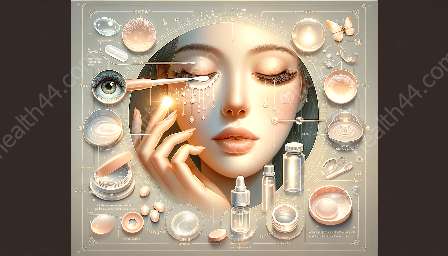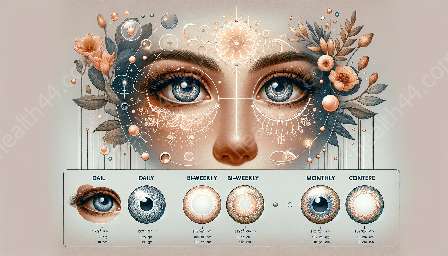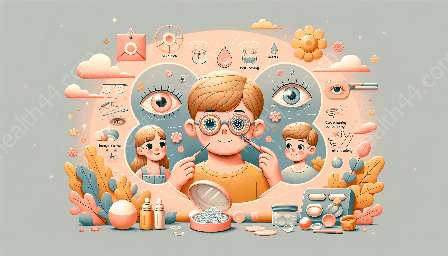Contact lens-induced dry eye can be prevented by following proper care and maintenance of contact lenses. This includes wearing the right type of lenses, practicing good hygiene, and taking breaks from lens wear. By incorporating these preventative measures, you can avoid discomfort and irritation associated with dry eyes caused by contact lens use.
Understanding Contact Lens-Induced Dry Eye
Before delving into prevention, it's important to understand what contact lens-induced dry eye is and how it occurs. Contact lens-induced dry eye is a condition characterized by discomfort, irritation, and dryness of the eyes, often as a result of wearing contact lenses. Factors such as reduced tear production, poor lens fit, and improper lens care can contribute to this condition. Symptoms may include redness, burning, itching, and blurred vision.
Preventative Measures
Preventing contact lens-induced dry eye involves a multi-faceted approach that encompasses proper lens selection, hygiene, and lifestyle habits. The following tips can help ensure comfortable and healthy contact lens wear:
- Choose the Right Type of Lenses: Select contact lenses designed to maintain moisture and provide optimal oxygen flow to the eyes. Silicone hydrogel lenses, for example, are known for their high breathability and ability to retain moisture.
- Follow Lens Replacement Schedule: Adhere to the recommended replacement schedule for your contact lenses. Overwearing lenses beyond their designated lifespan can lead to increased dryness and discomfort.
- Practice Good Hygiene: Always wash your hands before handling your contact lenses. Additionally, use recommended contact lens solutions to clean, disinfect, and store your lenses.
- Take Regular Breaks: Give your eyes regular breaks from contact lens wear, especially during prolonged screen time or in dry environments. Using lubricating eye drops can also help maintain moisture.
- Avoid Environmental Triggers: Minimize exposure to smoke, wind, and allergens, as these can exacerbate dryness and irritation while wearing contact lenses.
Consulting with an Eye Care Professional
If you experience persistent dryness and discomfort despite following preventative measures, it's crucial to seek guidance from an eye care professional. An optometrist or ophthalmologist can assess your eye health, recommend tailored solutions, and determine if there are any underlying conditions contributing to your symptoms.
Conclusion
By taking proactive steps to prevent contact lens-induced dry eye, individuals can enjoy comfortable and uninterrupted contact lens wear. Prioritizing proper lens care, selecting suitable lens types, and being mindful of environmental factors can contribute to maintaining optimal eye health. Remember to seek professional advice if you encounter persistent symptoms, as early intervention can help mitigate potential complications.





















